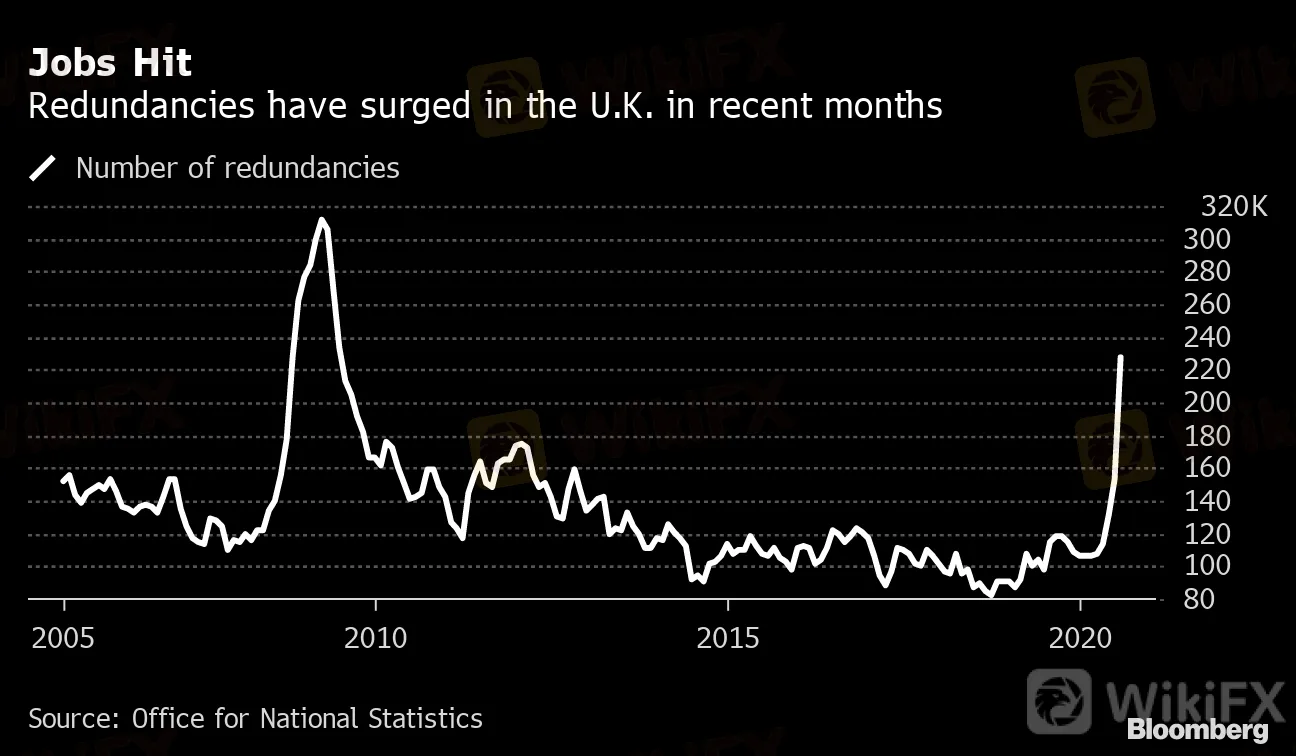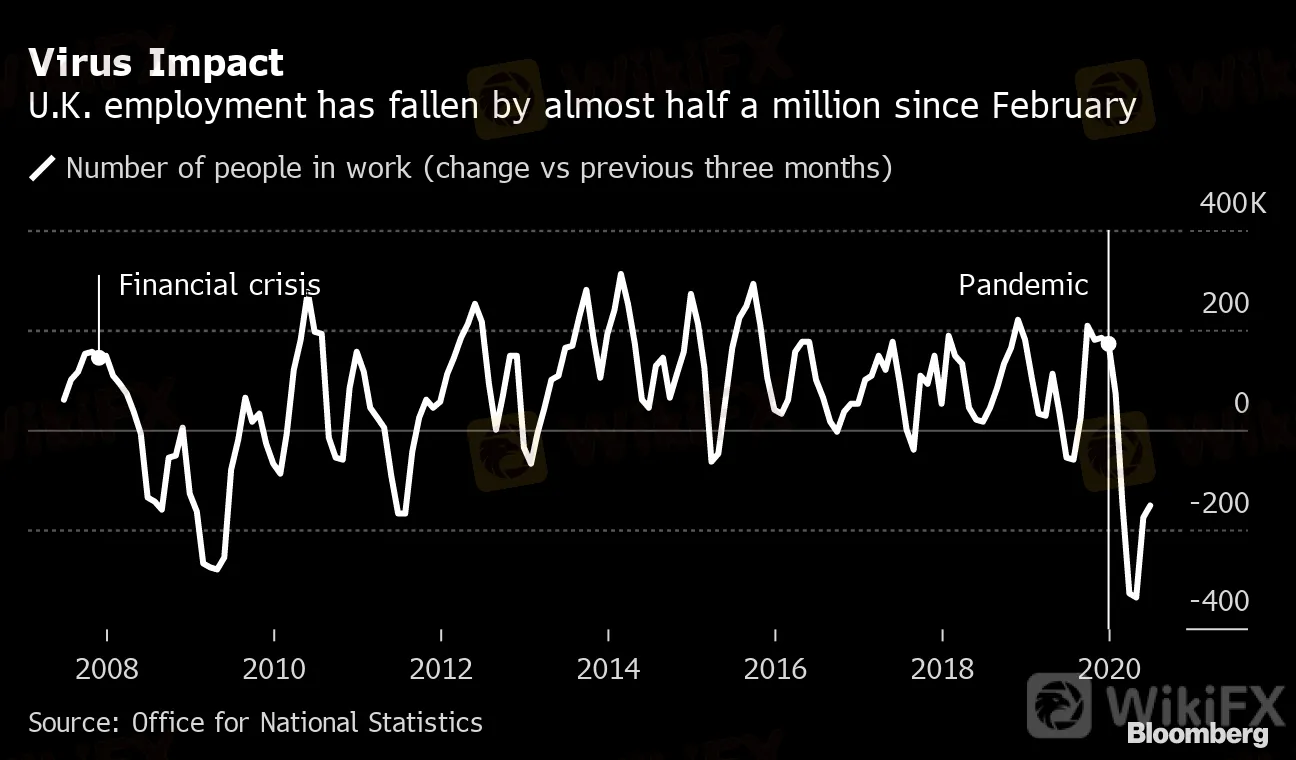简体中文
繁體中文
English
Pусский
日本語
ภาษาไทย
Tiếng Việt
Bahasa Indonesia
Español
हिन्दी
Filippiiniläinen
Français
Deutsch
Português
Türkçe
한국어
العربية
U.K. Job Cuts Jump Most on Record With More Pain on the Way
Abstract:U.K. job cuts jumped the most on record in the three months through August even as lockdown eased, raising concern that the worst is yet to come.
U.K. job cuts jumped the most on record in the three months through August even as lockdown eased, raising concern that the worst is yet to come.
The number of redundancies climbed 114,000 in the June-August period, the most since 1995, the Office for National Statistics said Tuesday. That left the total at 227,000, the highest since the financial crisis and a rate of more than 8 per 1,000 employees.
Jobs Hit
Redundancies have surged in the U.K. in recent months
{9}
Source: Office for National Statistics
{9}

Meanwhile, employment fell by 153,000, almost five times the level estimated by economists, and the jobless rate rose to 4.5%, the highest since 2017. The numbers may have been impacted by revisions due to data-collection problems caused by the need to avoid close contact.
The figures follow data last week showing the nations economy recovery slowed dramatically in August. With more curbs now in place to limit the spread of the virus, the fear is the winter will see more economic turmoil and a painful spike in joblessness.
Combined with the prospect of a no-deal departure from the European Unions single market at the end of the year, pressure is mounting on the government and the Bank of England to do more to support the economy. Economists expect the BOE to expand its bond-buying program as soon as November.
Employers hit by the pandemic will see wage subsidies for furloughed workers end this month. Few think its replacement or other newly announced support for firms affected by local lockdowns will be enough to avert mass job losses, with some predicting unemployment could surpass 3 million – levels not seen since the 1980s.
Unemployment stood at 1.52 million in the period through August after a 138,000-surge from the previous quarter, the biggest jump since the financial crisis.
Despite a small improvement last month, the number of employees on payrolls in September was still down 673,000 from March, data based on tax records show.
{21}
Virus Impact
{21}{22}
U.K. employment has fallen by almost half a million since February
{22}
Source: Office for National Statistics
{26}

Chancellor of the Exchequer Rishi Sunaks efforts to keep Britons in work come too late for many people. Firms from brewer Greene King to bank TSB have announced thousands of cuts in recent weeks.
{26}
{28}
“What were seeing today is the effect of the tapering of the furlough scheme,” Josie Dent, an economist at the Centre for Economics and Business Research, said in a Bloomberg Television interview. “August was the first month where employers had to contribute significantly and that will have meant, unfortunately for many, those costs just rose too high.”
{28}
— With assistance by Eileen Gbagbo, and Lucy Meakin
(Updates with more detail from second paragraph)
Disclaimer:
The views in this article only represent the author's personal views, and do not constitute investment advice on this platform. This platform does not guarantee the accuracy, completeness and timeliness of the information in the article, and will not be liable for any loss caused by the use of or reliance on the information in the article.
WikiFX Broker
Latest News
BSP Shuts Down Uno Forex Over Serious AML Violations
ACY Securities Expands Global Footprint with South Africa Acquisition
Rupee gains against Euro
Tokyo Police Arrest 4 for Unregistered FX Trading Scheme
US Regulators Tighten Oversight on Bank Anti-Money Laundering Efforts
Doo Group Expands Its Operations with CySEC License
RM900,000 Scammed: The Hidden Dangers of Online Investment Schemes
5 Advantages of Choosing a Regulated Broker
Axi Bids AUD 52M to Acquire Low-Cost Broker SelfWealth, Outbidding Competitor Bell Financial
Crypto Influencer's Body Found Months After Kidnapping
Currency Calculator


